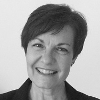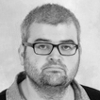
|

|

|
The interface between the study of cultural diversity in science and decision-making in science policy
Symposium 25 at the 25th International Congress of History of Science and Technology
Rio de Janeiro, Brazil, 27 & 28 July 2017
Organizers: Nina Atanasova (Toledo OH) and Benedikt Löwe (Amsterdam, Hamburg, & Cambridge).
Invited Speakers.
 |
Annamaria Carusi (Sheffield, England) Regulating Toxicity: Negotiations around Safety and Risk |
 |
|
| Matthew Inglis (Loughborough, England) Different disciplinary cultures of explanation in science |
Speakers of contributed talks. Nina Atanasova (Toledo OH, U.S.A.), Helen Lauer (Dar es Salaam, Tanzania), Peeter Müürsepp (Tallinn, Estonia), Vitaly Pronskikh (Batavia IL, U.S.A.), Joan Shenton (London, England).
Scientific practices show a great deal of diversity that is reflected in different values, aims, goals, criteria for success, and measures of quality. Diachronic diversity means that what were the values and the practice of a field in the past, may not be its values and practice anymore now, nor will they be its values and practice in the future; synchronic diversity separates scientific cultures along lines of disciplines, sectors, geographical regions, and other criteria. Issues involving with geographical cultural diversity connect naturally to the conference theme Science, Technology and Medicine between the Global and the Local. Historians, sociologists, and philosophers study the multi-faceted cultural differences and their effect on science and its practice.
Decisions in both national and international science policy are intimately connected to the mentioned cultural diversity of values, aims, goals, and practices. E.g., the aim that a funding instrument is supposed to achieve may be seen as desirable in one cultural context, but not in another; even if two different cultural contexts agree about the desirability of a goal, a funding instrument that helps in achieving that goal in one cultural context may be ineffective or even detrimental in another.
In this symposium, we wish to explore the actual and potential connections between researchers who study the cultural variety of science from historical, sociological, and philosophical perspectives and the deciders and stakeholders in both local and global science policy: Are policy makers informed about the effects of scientific cultural diversity? If so, how does this affect their decisions? If not, what can researchers of cultural diversity in science do in order to connect to the decision makers.
Programme. In the following programme, we included the sessions of Symposium 48 Historical inquiry & intellectual transmission: How shall we write about how knowledge travels?, also organised by IASCUD, which takes place in the same room, as well as the statutory General Assembly of IASCUD to which all members of IASCUD are cordially invited.
Session 1. Thursday 27 July 2017. 9:00-10:30.
9:00-9:30. Welcome, opening, & introduction.
9:30-10:30. Annamaria Carusi (Sheffield, England): Regulating Toxicity: Negotiations around Safety and Risk.
Session 1 of S48. Thursday 27 July 2017. 10:45-12:15.
Session 2. Thursday 27 July 2017. 15:30-17:00
15:30-16:15. Peeter Müürsepp (Tallinn, Estonia): Preserving Academic Traditions over Ages—the Case of Estonia.
16:15-17:00. Helen Lauer (Dar es Salaam, Tanzania), Joan Shenton (London, England), How cross cultural epistemic injustice in the global health arena undermines public health care delivery in Africa.
IASCUD General Assembly. Friday 28 July 2017. 17:15-18:45.
Session 3. Friday 28 July 2017. 9:00-10:30
9:00-9:45. Nina Atanasova (Toledo OH, U.S.A.), ADHD across Cultures and over Time.
9:45-10:30. Vitaly Pronskikh (Batavia IL, U.S.A.): Cultural and Political Aspects of the First US-USSR High-Energy Physics Experiment at NAL.
Session 2 of S48. Friday 28 July 2017. 10:45-12:15.
Session 4. Friday 28 July 2017. 15:30-17:00
15:30-16:30. Matthew Inglis (Loughborough, England): Different disciplinary cultures of explanation in science.
16:30-17:00. Discussion.
This symposium is organised and generously funded by IASCUD.
